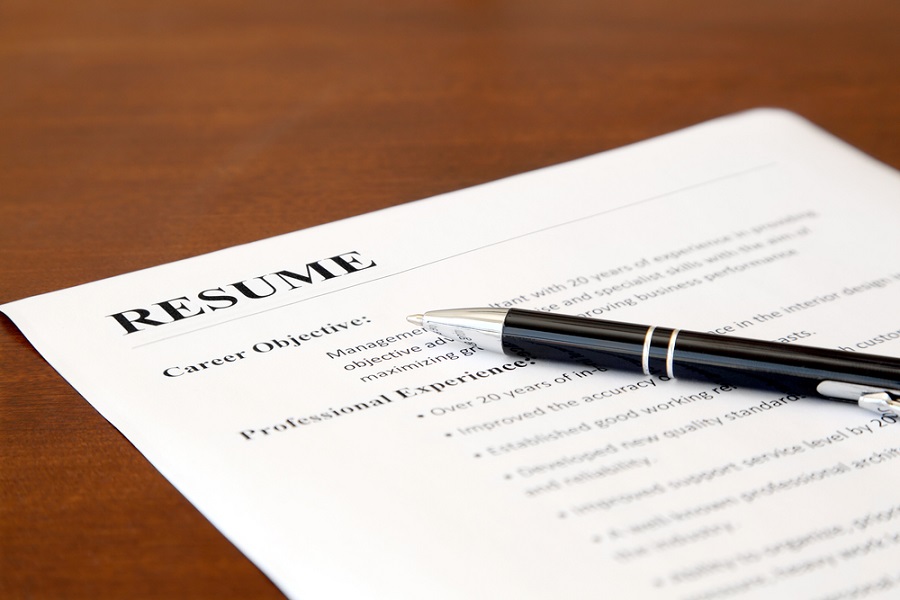10 Things You Should Not Include On Your CV

For job seekers, the resume may be the most important document they need. After all, what’s on that simple piece of paper can mean the difference between landing an interview and landing in the circular file. While most job seekers concentrate on what they should include on their resume, few pay attention to what they shouldn’t include. This article explores 10 things you should never put on your resume.
1. Objective
We’ve all seen those generic objective statements talk about “[ ] professional looking for opportunities that will allow me to leverage my [ ] skills.” Avoid the run-of-the-mill objective statement and replace it with your elevator pitch. In a brief paragraph, explain what you’re great at, most interested in, and how you can provide value to a prospective employer. In other words, summarize your job goals and qualifications for the reader.
2. Head shot
Unless you’re creating a CV to apply to positions outside of the United States, or you’re in the entertainment world and a head shot is part of the job, you should never include a picture of yourself with your resume. Your photo will likely clue the employer into your nationality, religion and age (among other factors) that could inadvertently lead to discrimination. No need to give them any of those details until they’ve considered your application based solely on your qualifications. Play it safe and leave the head shot off your resume.
3. Inappropriate email addresses
The email address [email protected] may have been cute when you were in college, but it’s not the best choice to represent your professional brand today. The same goes for shared family accounts such as [email protected] and email addresses that are offensive or sexual in nature. Do yourself a favor and sign up for a free address with a provider like Gmail that’s reserved exclusively for your job-search and networking activities.
4. Mailing address
If you’d like to relocate for work, you probably already know it’s best to leave your current address off your resume. However, it’s becoming increasingly common for professionals to remove this information, regardless of their target location. If you’re searching for a position in your current location and want employers to know you’re a local candidate, include your city and state. However, leave your street address off to protect yourself from potential identity theft.
5. Multiple phone numbers
Do you remember the scene in the movie “He’s Just Not That Into You” where Drew Barrymore’s character is complaining about playing phone (and email and Facebook and text…) tag with a potential suitor? The more phone numbers you introduce into the mix, the easier it is to miss an important message from a prospective employer. Avoid this confusion by listing one phone number, preferably the number for your mobile phone, where you control the voicemail, who picks up the phone, and when.
6. Personal details
There’s no need to include personal information such as your social security number, marital status, nationality or spiritual beliefs. In fact, it is illegal for an employer to ask for these personal details. I also recommend removing your hobbies from the resume. Unless you’re incredibly new to the workforce or your activities are directly related to your target job, you’re merely wasting resume real estate.
7. Irrelevant social media accounts
Not only is this information a waste of resume space, but including personal social media accounts that aren’t aligned with your professional brand can derail your job search. Remove these links from your resume and take steps to safeguard your brand.
Flesh out at least one professional profile on sites like LinkedIn, GitHub, or About.Me, depending upon your line of work, and include the link at the top of your resume. If you work in a creative field, consider creating a personal site that has a mobile-responsive design so you can share your portfolio from any device.
8. Current employer’s contact info
Remember, this contact information will be used by recruiters to contact you. Do you really want them calling you at work or using an email address that can be monitored by your current employer? Don’t inadvertently tip your boss off about your job-search activities. Always list your personal email address and phone number on your resume and job applications. The same goes for any social media accounts associated with your professional brand.
9. Embedded tables
Don’t include embedded tables or images in your resume and avoid using the actual Header and Footer sections of the Word document, as these can confuse the employer’s online applicant tracking system, known as an ATS system, and scramble your job application.
10. Crazy fonts and colors
When choosing your resume font, stick to ones that are considered easy to read and won’t confuse the ATS systems: Arial, Calibri, Cambria, Tahoma, Book Antiqua or Franklin Gothic. If you’re in a creative position, save the creative designs for your online portfolio. Employers still need a version of your resume that can be easily uploaded, parsed and stored in their online tracking system.




